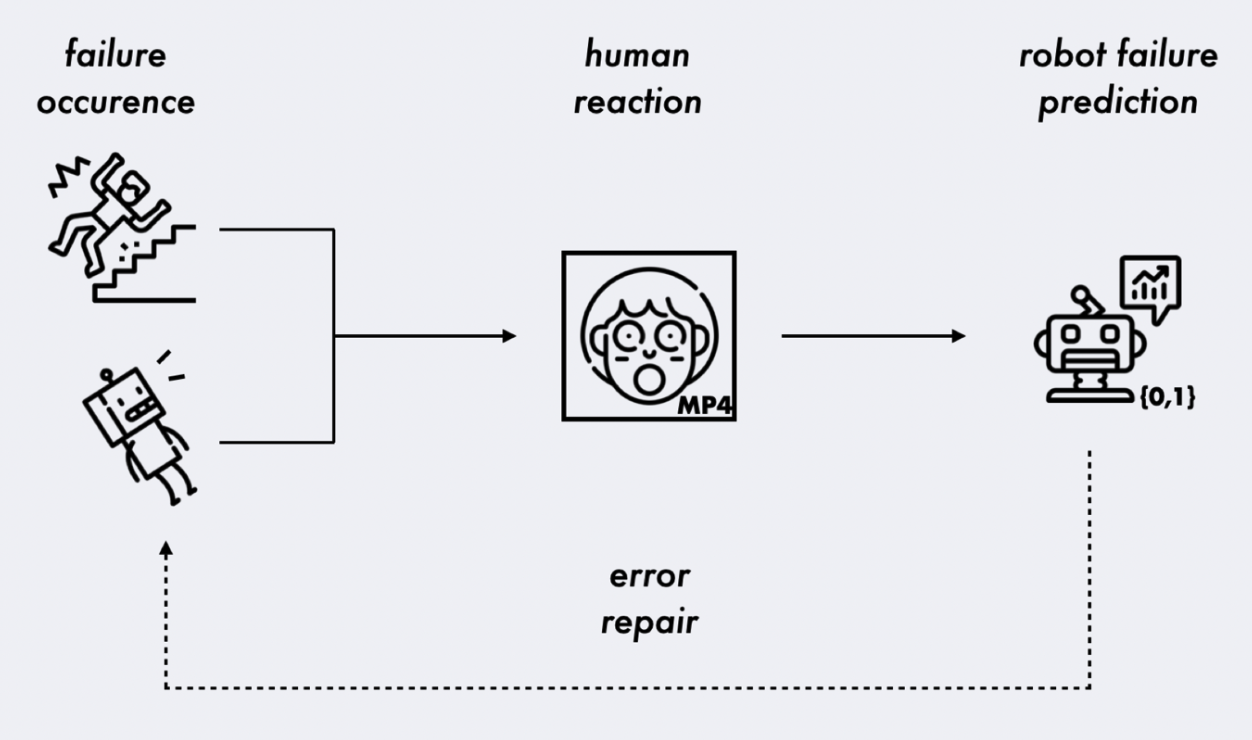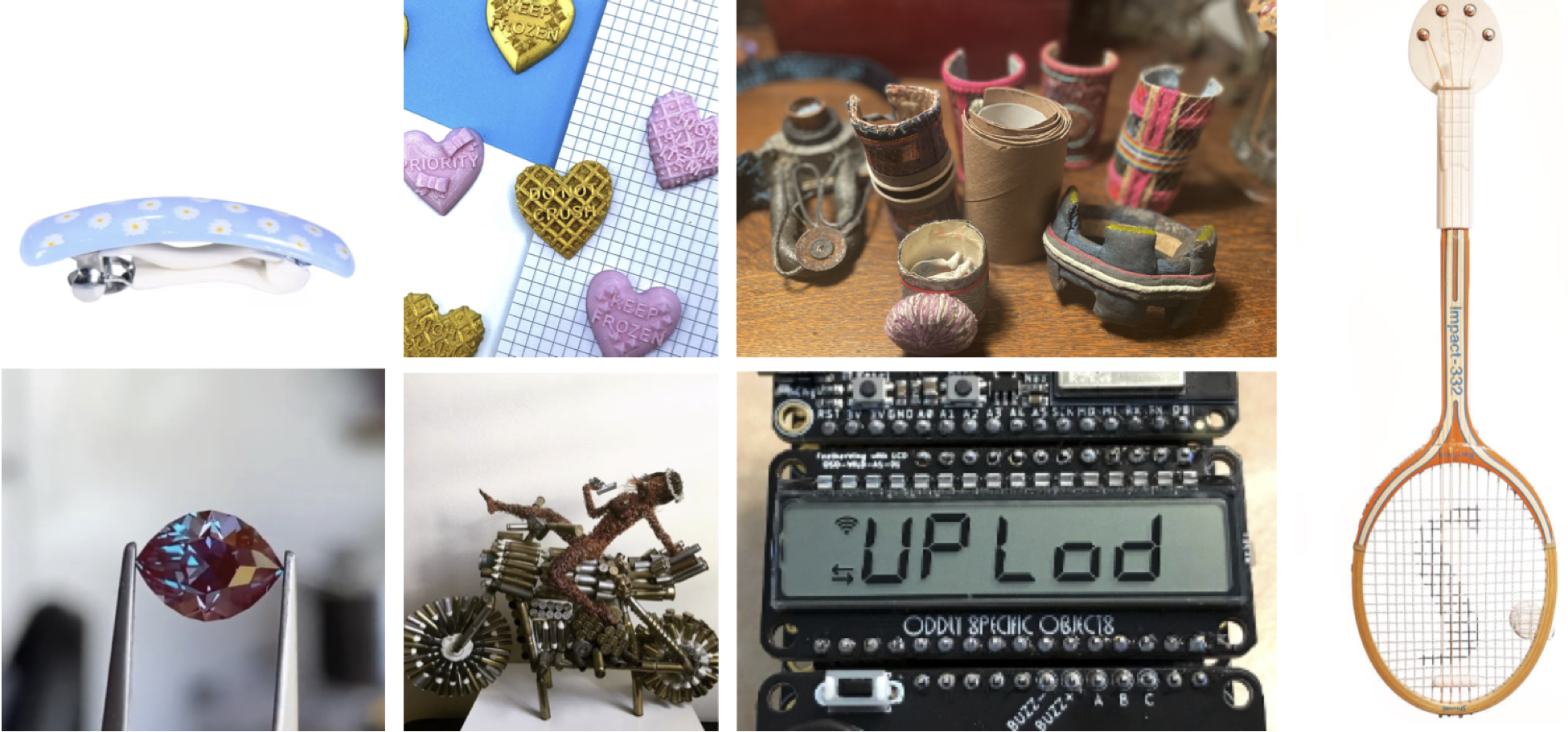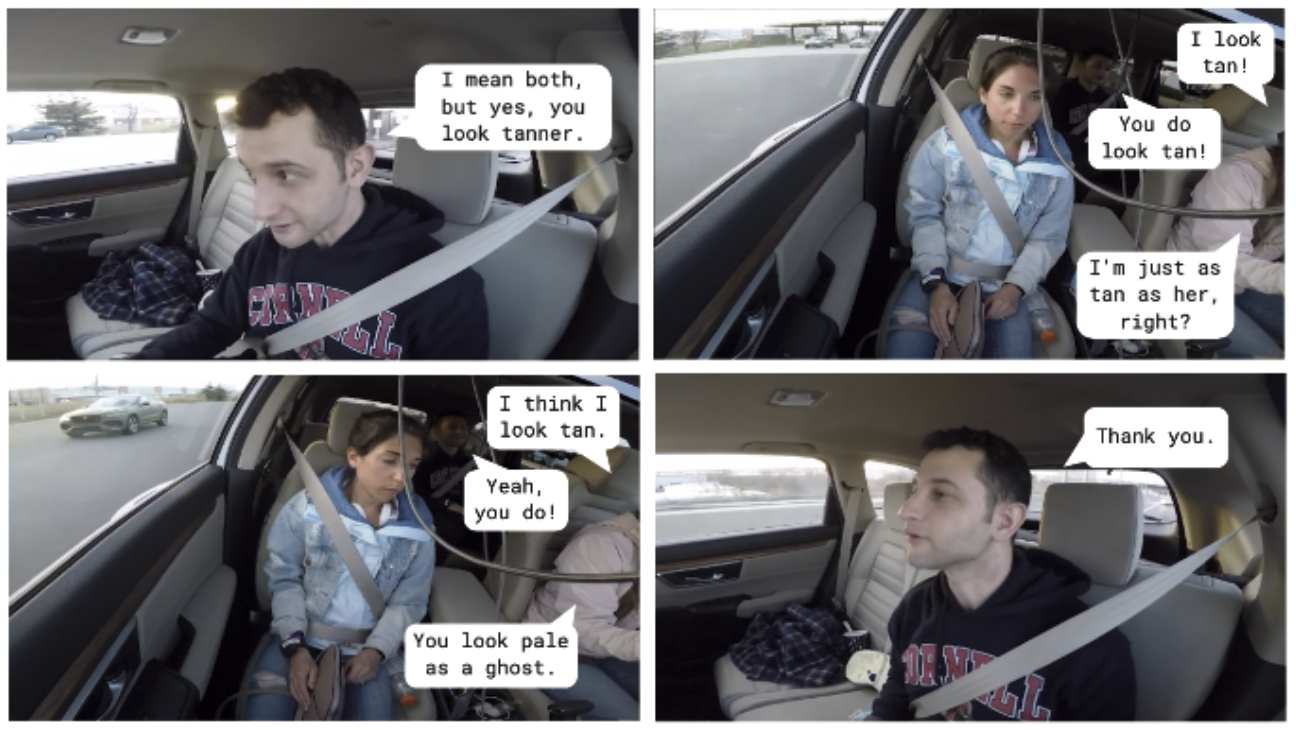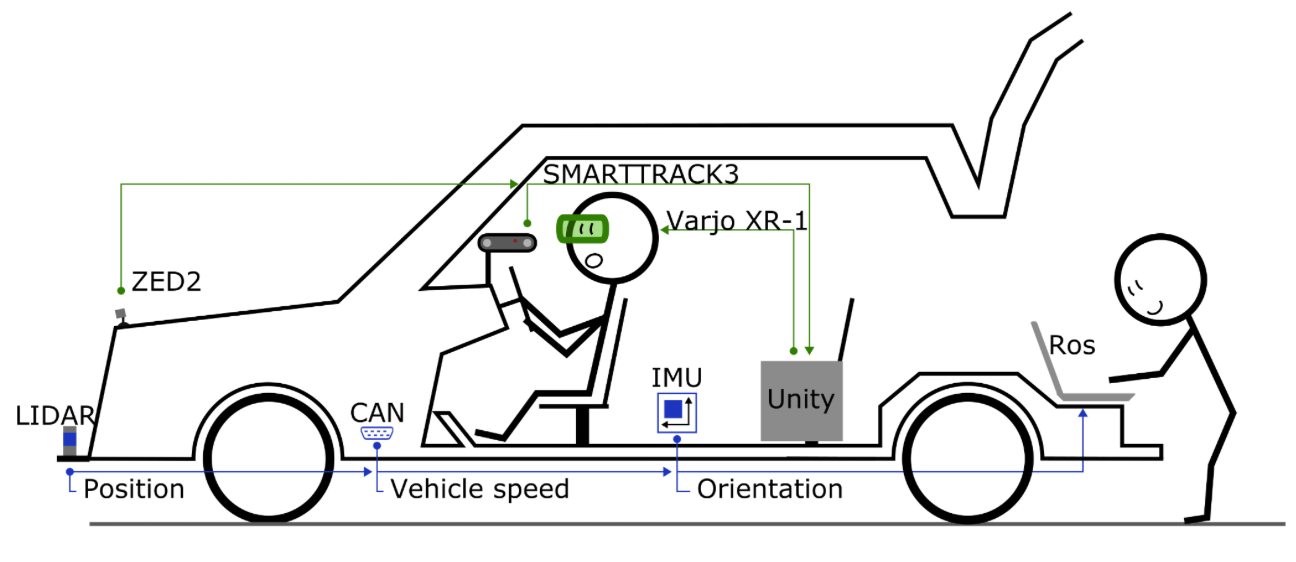
Alexandra Bremers
PhD Candidate
Information Science
Member since September 2020
About
Research Interests
- Interaction Design
- Fabrication
- Artificial Intelligence
- Human-Robot Interaction
- Augmented Reality
Projects

The Bystander Affect Detection (BAD) Dataset for Failure Detection in HRI
We introduce the Bystander Affect Detection dataset -- a dataset of videos of bystander reactions to videos of failures. This dataset includes 2452 human reactions to failure, collected in contexts that approximate in-the-wild data collection -- including natural variances in webcam quality, lighting, and background. Our video dataset may be requested for use in related research projects. As the dataset contains facial video data of our participants, access can be requested along with the presentation of a research protocol or data use agreement that protects participants. This project is part of a collaborative research effort between Cornell Tech (PI: Associate Professor Wendy Ju) and Accenture Labs. Read our BAD Dataset paper here: https://ieeexplore.ieee.org/document/10342442. Read our larger literature and framework on using social cues to detect task failures here: https://arxiv.org/abs/2301.11972. Request access to the BAD dataset by sending a message through the Qualitative Data Repository (best accessible through Google Chrome): https://data.qdr.syr.edu/dataset.xhtml?persistentId=doi:10.5064/F6TAWBGS.

Understanding the Challenges of Maker Entrepreneurship
The maker movement embodies a resurgence in DIY creation, merging physical craftsmanship and arts with digital technology support. However, mere technological skills and creativity are insufficient for economically and psychologically sustainable practice. By illuminating and smoothing the path from maker to maker entrepreneur, we can help broaden the viability of making as a livelihood. Our research centers on makers who design, produce, and sell physical goods. In this work, we explore the transition to entrepreneurship for these makers and how technology can facilitate this transition online and offline. We present results from interviews with 20 USA-based maker entrepreneurs (i.e., lamps, stickers), six creative service entrepreneurs (i.e., photographers, fabrication), and seven support personnel (i.e., art curator, incubator director). Our findings reveal that many maker entrepreneurs 1) are makers first and entrepreneurs second; 2) struggle with business logistics and learn business skills as they go; and 3) are motivated by non-monetary values. We discuss training and technology-based design implications and opportunities for addressing challenges in developing economically sustainable businesses around making. Find the paper here: https://arxiv.org/abs/2501.13765.

(Social) Trouble on the Road: Understanding and Addressing Social Discomfort in Shared Car Trips
Unpleasant social interactions on the road can negatively affect driving safety. We recorded nine families going on drives and performed interaction analysis on this data. We define three strategies to address social discomfort: contextual mediation, social mediation, and social support. We discuss considerations for engineering and design, and explore the limitations of current large language models in addressing social discomfort on the road. Read our work here: https://dl.acm.org/doi/10.1145/3640794.3665580

XR-OOM: MiXed Reality Driving Simulation With Real Cars
High-fidelity driving simulators can act as testbeds for designing in-vehicle interfaces or validating the safety of novel driver assistance features. In this system paper, we develop and validate the safety of a mixed reality driving simulator system that enables us to superimpose virtual objects and events into the view of participants engaging in real-world driving in unmodified vehicles. To this end, we have validated the mixed reality system for basic driver cockpit and low-speed driving tasks, comparing the use of the system with non-headset and with the headset driving conditions, to ensure that participants behave and perform similarly using this system as they would otherwise. Read our paper here: https://doi.org/10.1145/3491102.3517704
